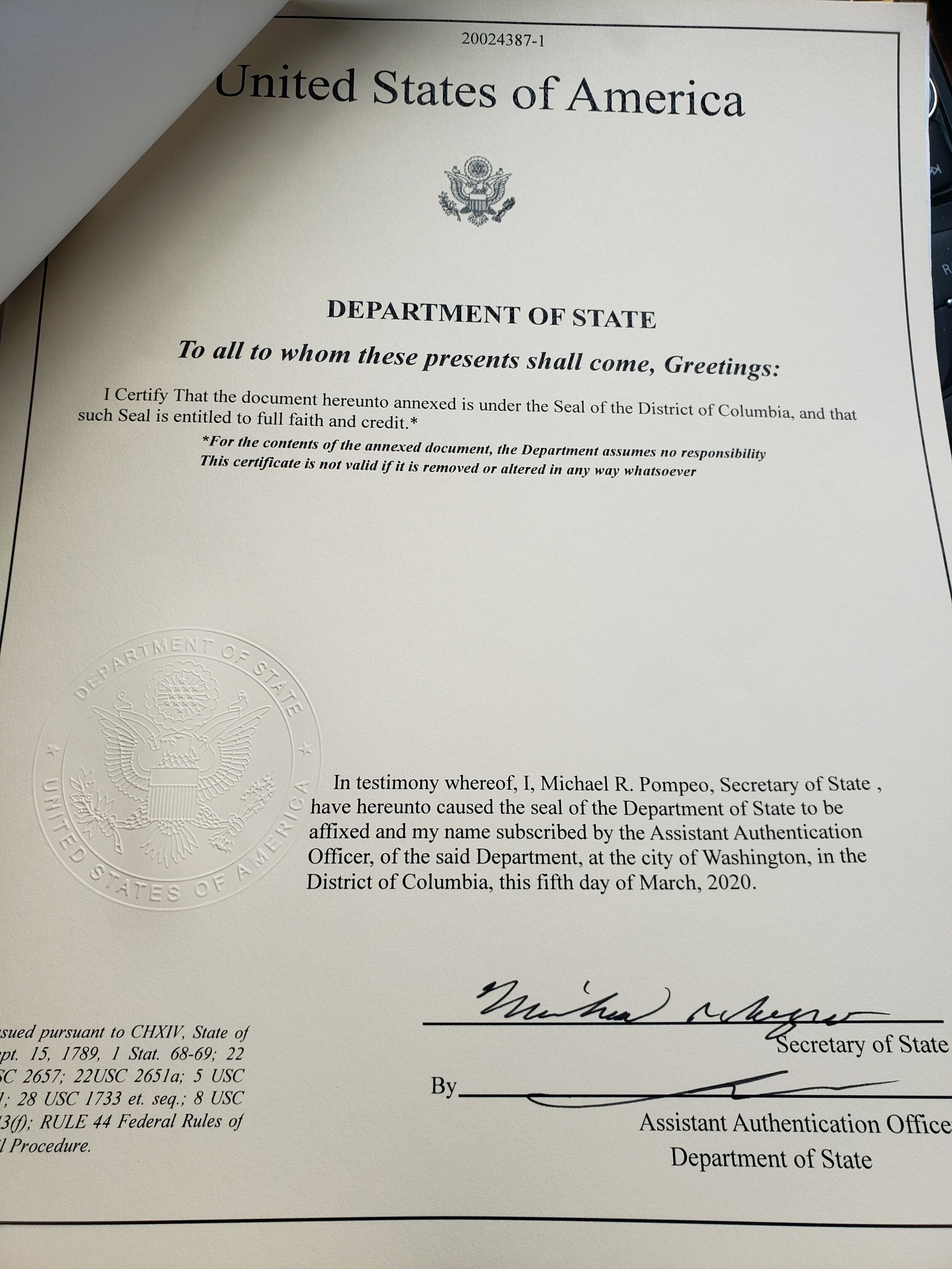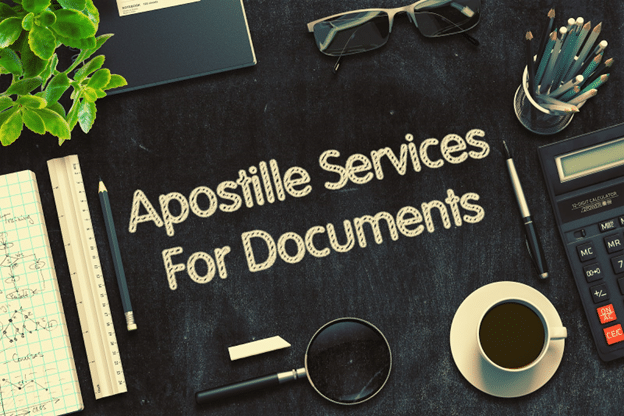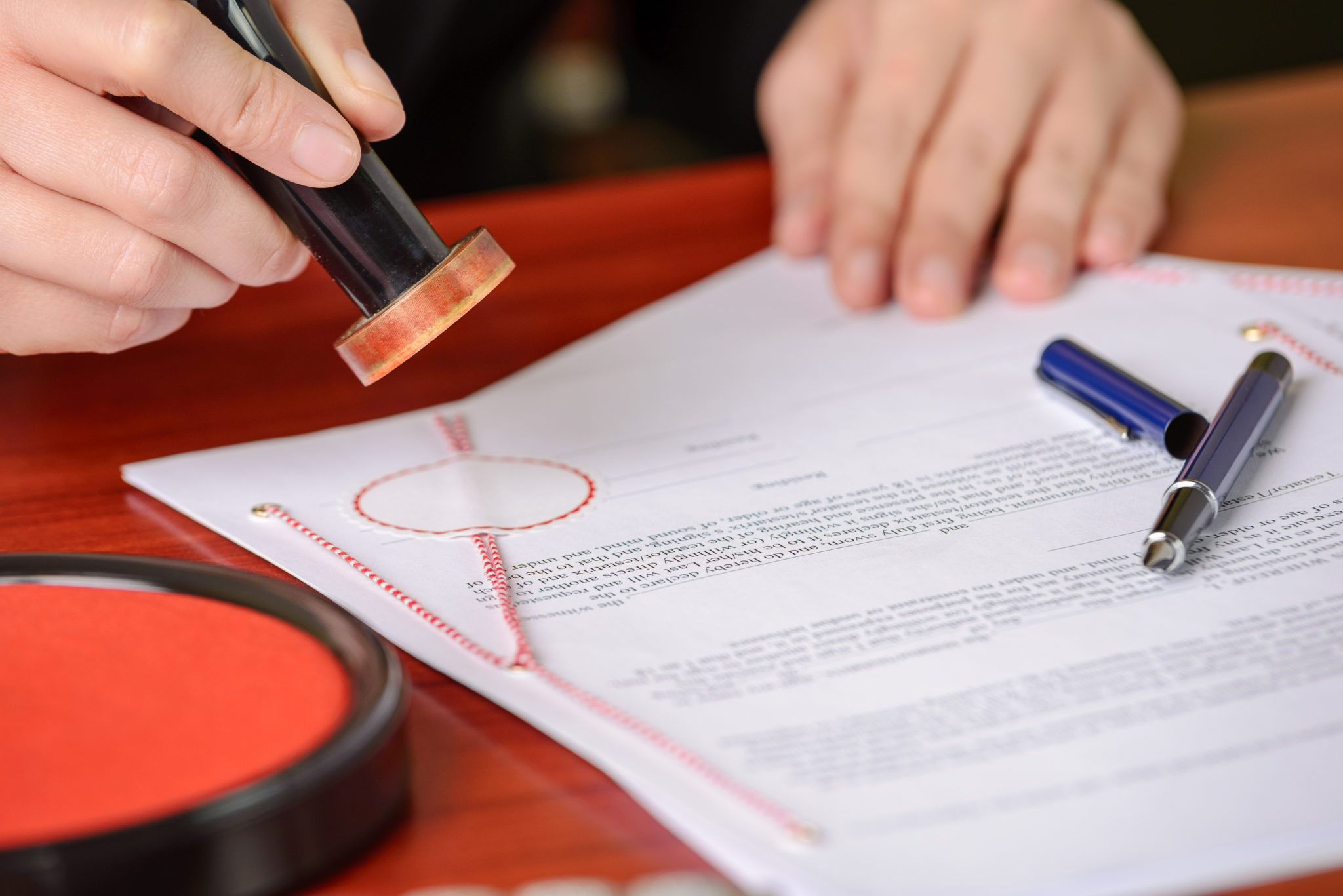Houston Texas Apostille Service: Your Path to Global Recognition
Diving Into the Factors Behind the Necessary Need of Apostille Qualification for Legal Documents
In the world of lawful paperwork, the required requirement of apostille certification has ended up being an essential element that substantially affects the legitimacy and acknowledgment of lawful papers on a worldwide range. Recognizing the reasoning behind this need entails delving right into the detailed internet of lawful intricacies, historic criteria, and international arrangements that emphasize the value of apostille accreditation in today's interconnected world. By checking out the underlying reasons behind this prevalent need, a more clear photo emerges of why this seemingly governmental procedure holds such enormous importance for governments, people, and organizations alike.
Historic Development of Apostille Qualification
Just how did the concept of apostille certification advance over time to become a necessary component of international file recognition? The demand for a streamlined method of validating papers for usage throughout boundaries became obvious as worldwide profession and traveling raised.
Initially adopted by a few European nations, the Apostille Convention slowly got international approval as a result of its performance and effectiveness in verifying the legitimacy of official papers. Throughout the years, the convention's reach increased as even more nations signed up with, recognizing the apostille as a generally approved kind of record authentication. Today, apostille certification has become a typical need for confirming legal documents in global purchases, making certain smooth interaction and lawful procedures in between nations.
Simplifying International Document Legalisation
The streamlining of international file legalization treatments has actually substantially enhanced performance in cross-border transactions. Simplifying the procedure of legalizing papers for international usage has ended up being important in promoting swift and seamless purchases in between countries. One of the key devices that have contributed to this simplification is the fostering of the Apostille Convention, which gives a standard method for verifying the authenticity of papers throughout getting involved nations.
By adhering to the Apostille requirements, countries accept acknowledge each various other's public records as legitimate without the need for further legalization. This gets rid of the commonly difficult and extensive procedure of numerous authentications by different authorities, saving time and resources for people and services involved in global tasks.

Making Certain Paper Authenticity and Credibility
To guarantee the authenticity and validity of lawful papers in international transactions, rigorous confirmation procedures are vital - Houston Apostille. Legal documents play a crucial duty in cross-border negotiations, and ensuring their legitimacy is extremely important to promote the stability of such deals. By needing apostille qualification for lawful papers, authorities aim to verify the origin of records and validate the signatures of individuals entailed. This procedure assists stop fraud, misstatement, and various other malpractices that could threaten worldwide agreements or lawful procedures.
Furthermore, validating the credibility of legal papers via apostille certification improves depend on and self-confidence among parties involving in global transactions. It offers assurance that the papers offered are genuine and legally binding, thus minimizing the threats related to fraudulent activities. Furthermore, making certain record validity through apostille certification simplifies the legalisation procedure, making it extra reliable and reliable for companies and people conducting service throughout boundaries. Inevitably, by promoting rigorous confirmation criteria, apostille qualification adds to an extra safe and transparent their explanation worldwide legal framework.

Assisting In Cross-Border Legal Recognition
In the realm of international transactions, the apostille certification not only ensures the credibility and legitimacy of lawful papers however likewise plays a pivotal role in promoting cross-border lawful recognition (Houston Apostille). When legal documents bear an apostille certification, they are easily accepted by international authorities without the demand for additional verification. This structured procedure speeds up the recognition of documents in various nations, promoting efficiency and decreasing bureaucratic difficulties in lawful matters that transcend nationwide limits
Helping with cross-border legal acknowledgment through apostille certification promotes trust and confidence in the credibility of papers exchanged between nations. This recognition is specifically vital in scenarios such as global business deals, adoption processes, or lawful proceedings including parties from different territories. By adhering to the requirements established forth by the Apostille Convention, nations consent to honor the apostille seals attached to records from other participant nations, thus streamlining the procedure of legal recognition throughout boundaries. Eventually, the apostille qualification serves as an essential device in promoting seamless worldwide lawful collaboration and making sure the smooth procedure of cross-border transactions.
Conformity With International Treaty Requirements
Compliance with international treaty criteria is imperative for ensuring the consistent application of lawful guidelines across taking part nations. The Apostille Convention, established in 1961, outlines the needs for the approval of public papers among member nations.
The Apostille other qualification, as mandated by the treaty, functions as an assurance of authenticity for records such as birth certifications, marriage licenses, court judgments, and notarized deeds. This standard method aids stop scams and ensures that lawful papers stemming from one member country are easily accepted in an additional. By conforming with international treaty standards, countries demonstrate their commitment to maintaining the concepts of openness, trust fund, and collaboration in lawful matters on a worldwide range.
Final Thought

In the world of legal documents, the obligatory demand of apostille qualification has ended up being a necessary facet that significantly affects the credibility and acknowledgment of lawful documents on an international scale. Today, apostille certification has ended up being a common need for confirming lawful important source papers in international transactions, making sure smooth interaction and lawful procedures in between countries.
Additionally, validating the credibility of lawful records via apostille qualification boosts trust fund and self-confidence amongst events involving in worldwide deals.In the realm of worldwide deals, the apostille accreditation not only guarantees the authenticity and validity of lawful records yet additionally plays a crucial duty in assisting in cross-border legal recognition. By sticking to the criteria established forth by the Apostille Convention, countries agree to honor the apostille seals fastened to papers from other member nations, hence simplifying the process of lawful acknowledgment throughout borders.